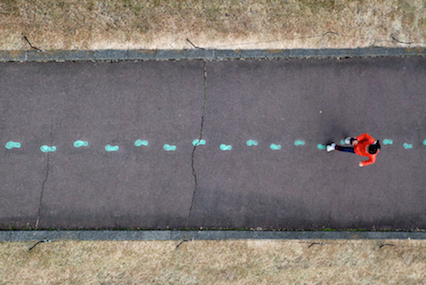가: 이채소는 어떠게 할까요?
What should we do with this vegetables?
나: 먼저 다듬어 가지고 냉장고에 넣어 주세요. 샐러드는 조금 후에 만들거예요.
First tidy them up and put them in the refrigerator. We’ll make the salad a bit later.
가: 양강 씨, 지금 뭐 해요?
Hey. Yang Gang, what are you doing?
나: 빨래를 해 가지고 널고 있어요.
I washed my clothes and now I’m hanging them to dry.
Meaning in Use
- This expression expresses the action in the following clause based on the result of doing the action in the preceding clause. This grammar is primarily used in conversation rather than written text. As it requires two or more actions, it can only be used with verbs.
돈을 빨리 모아가지고 자동차를 사고 싶어요.
I want to save up a bunch of money and buy a car.
등산갈 때 계가 집에서 감밥을 만들어 가지고 갈게요.
When we go hiking, I’ll make some kimbap to take with us.
할아버지께서 손자들을 불러 가지고 용돈을 주셨어요.
Grandpa called over the grandchildren and gave them all some spending money.
- This expression can also indicate the speaker’s reason for a certain action or state of affairs. In this case, the expression can be used with adjectives.
스마트폰을 사고 싶은데 비싸 가지고 못 사겠어요.
I want to buy a smart phone but they are to expensive so I won’t be able to.
지난해에 비해 물가가 많이 올라가지고 생활비가 많이 들어요.
Last year prices have risen a lot so the cost of living has risen as well.
Note: When this grammar is used to express sequence, imperative and propositive forms can be used. In contrast, when this grammar is used to express a reason, the imperative and propositive forms cannot be used.


